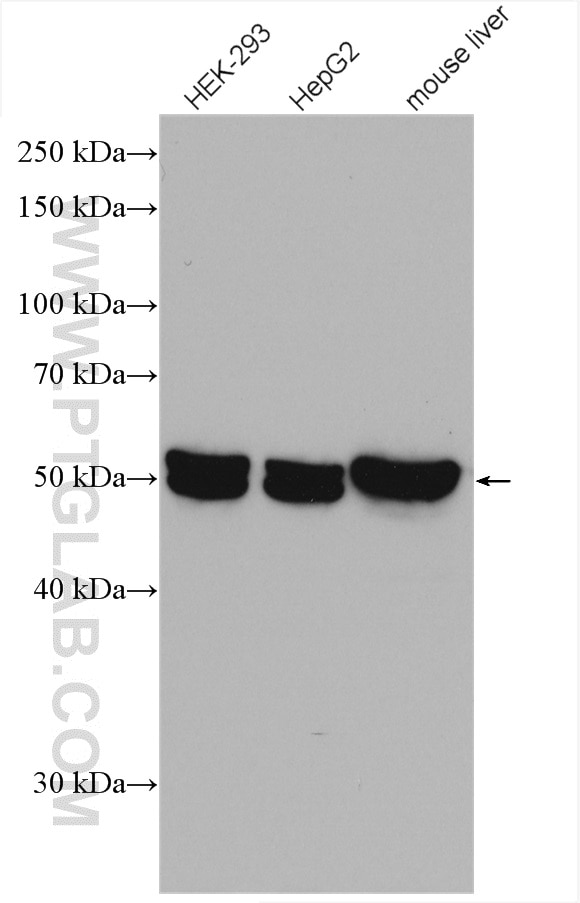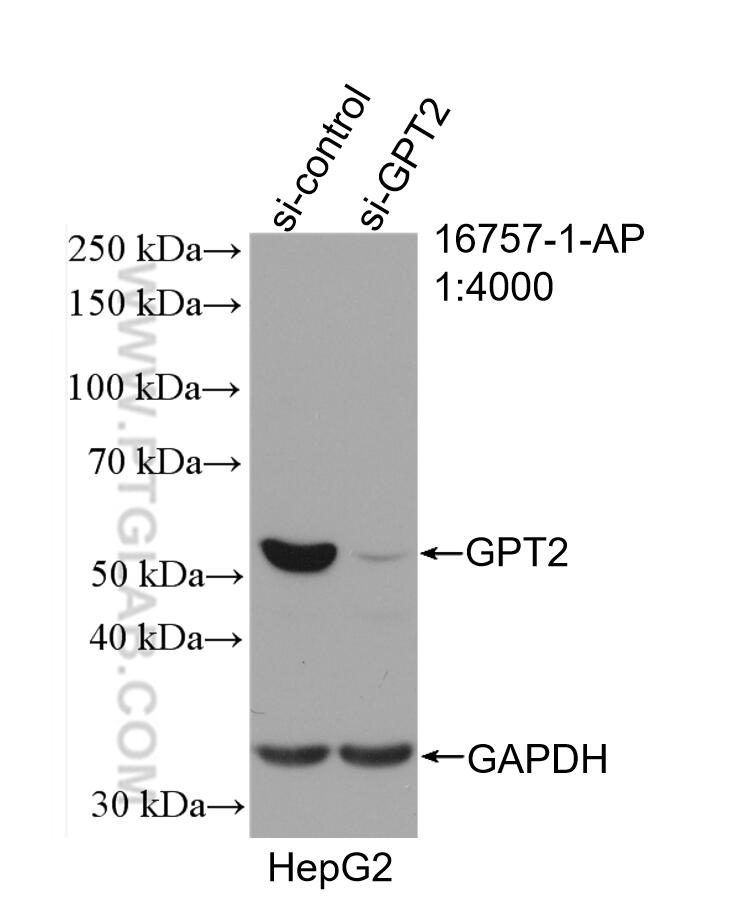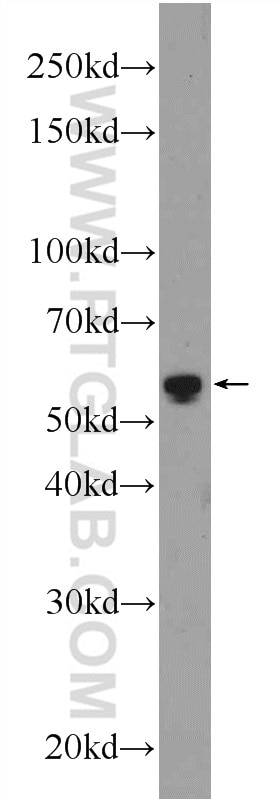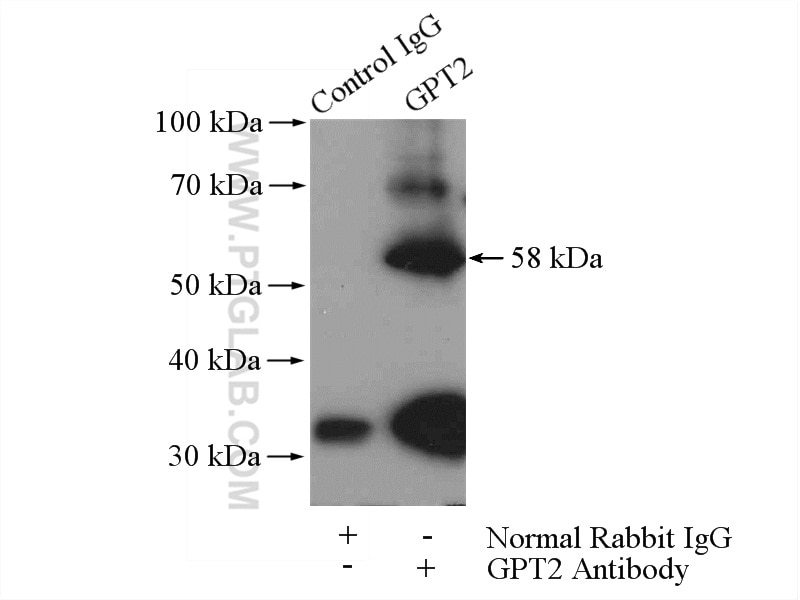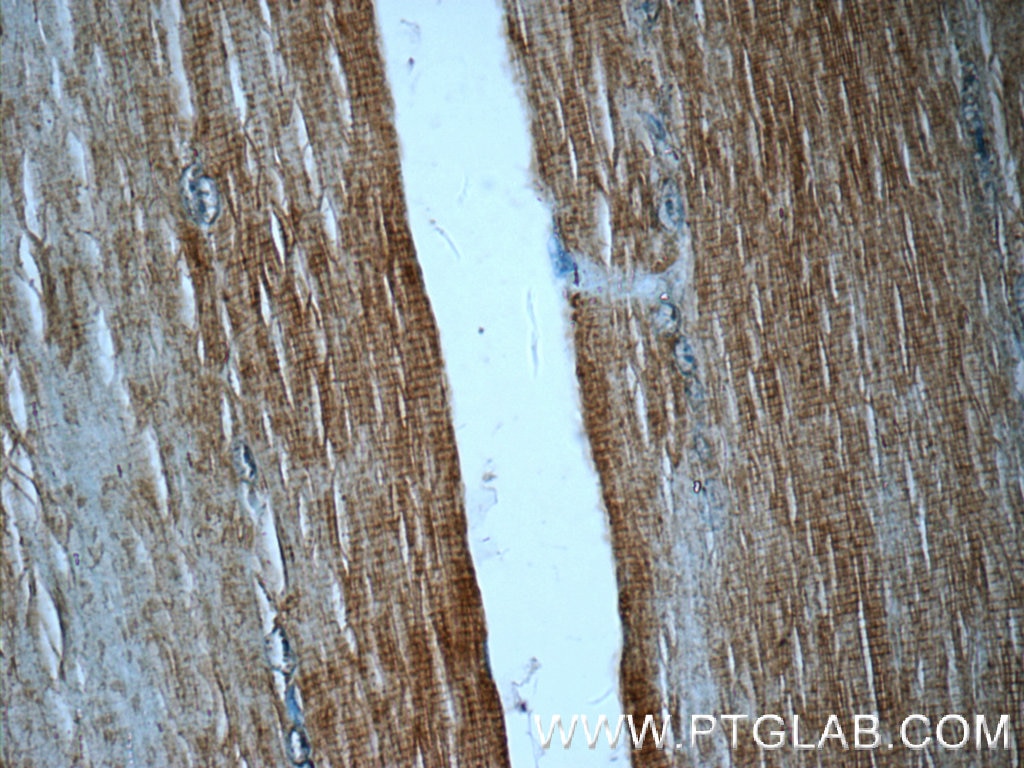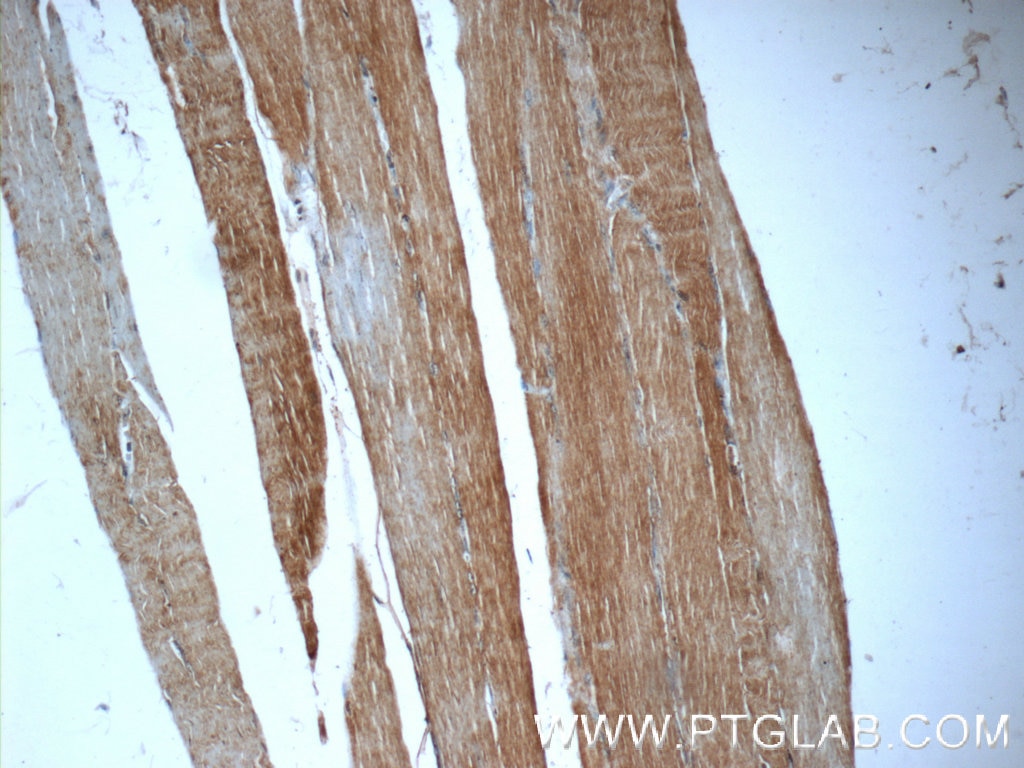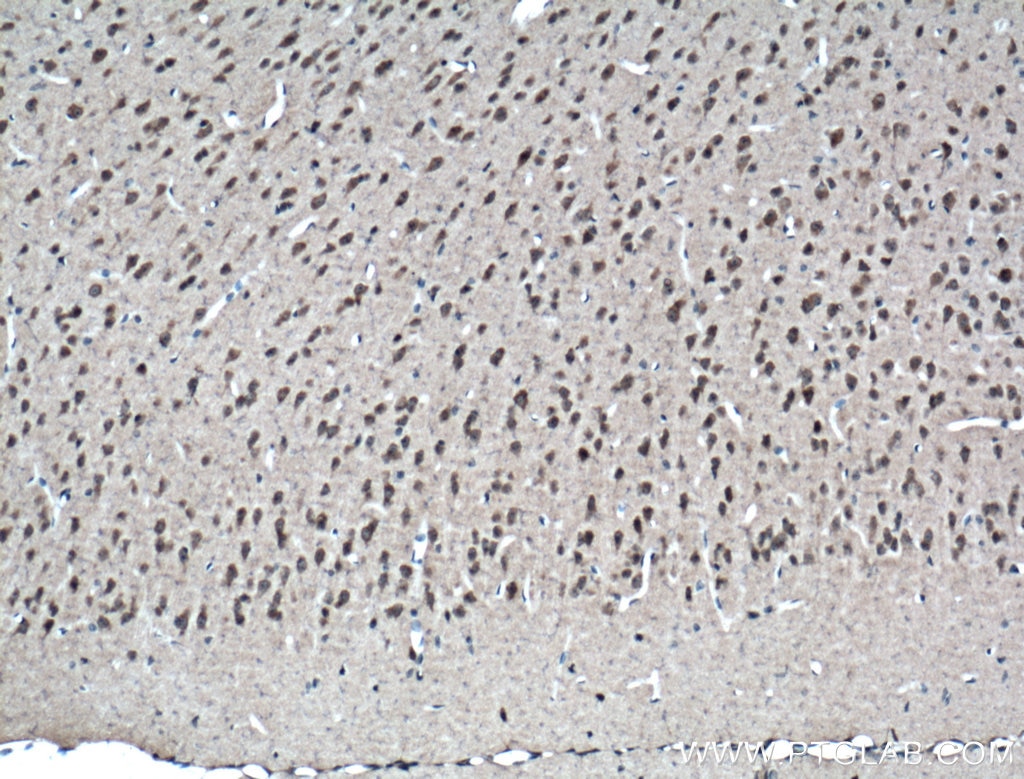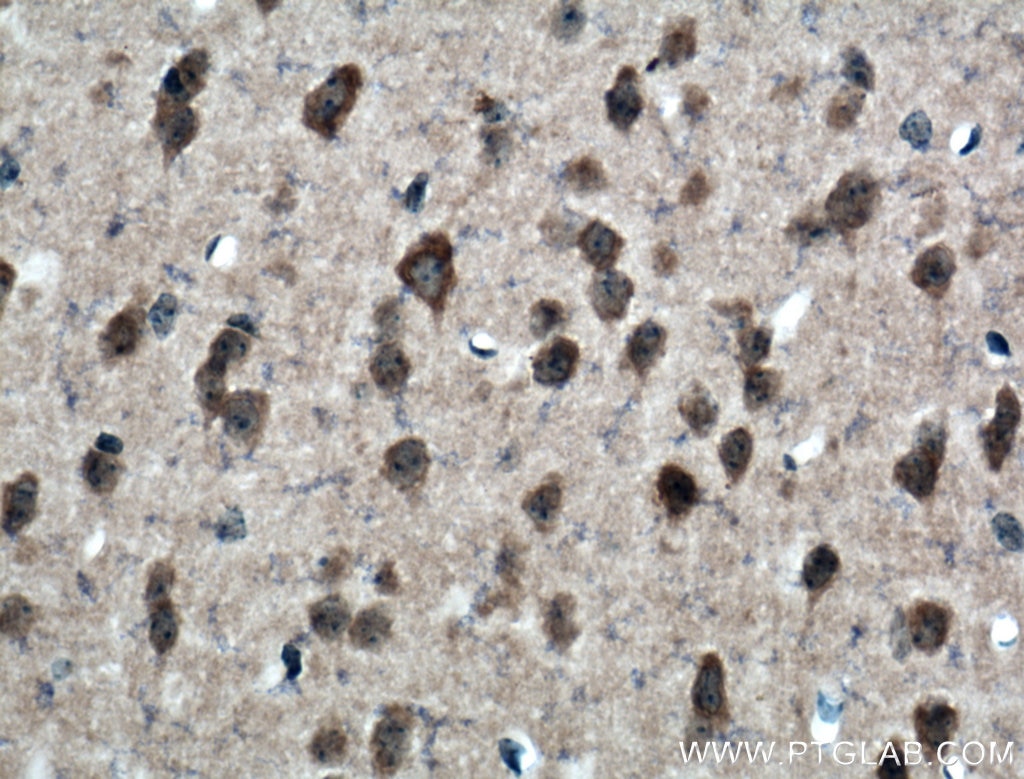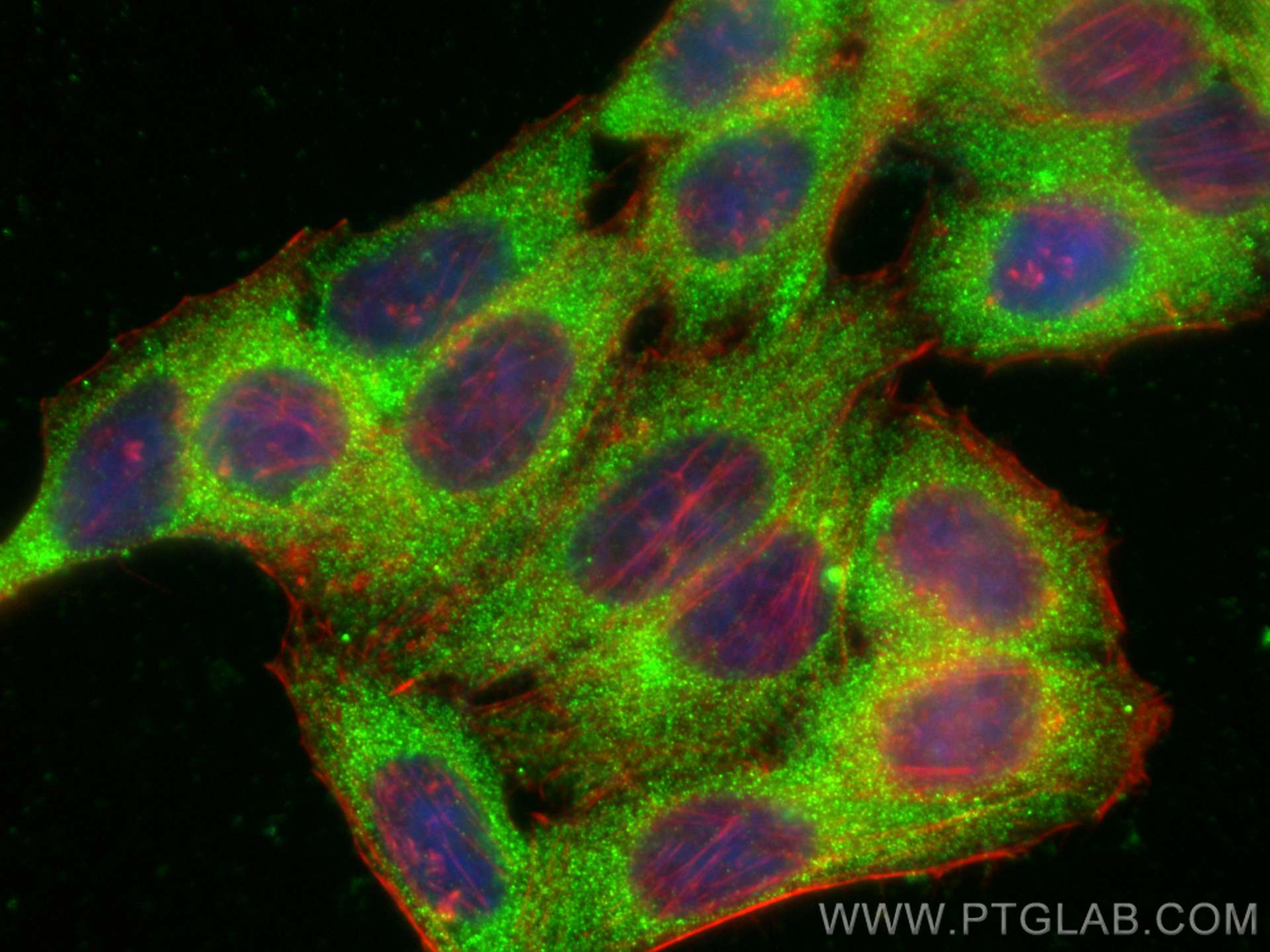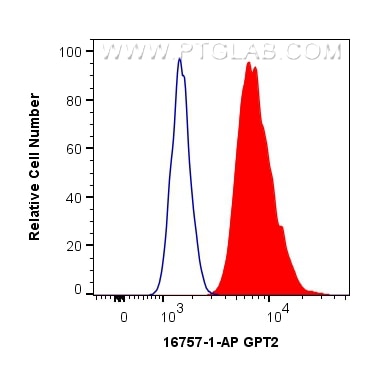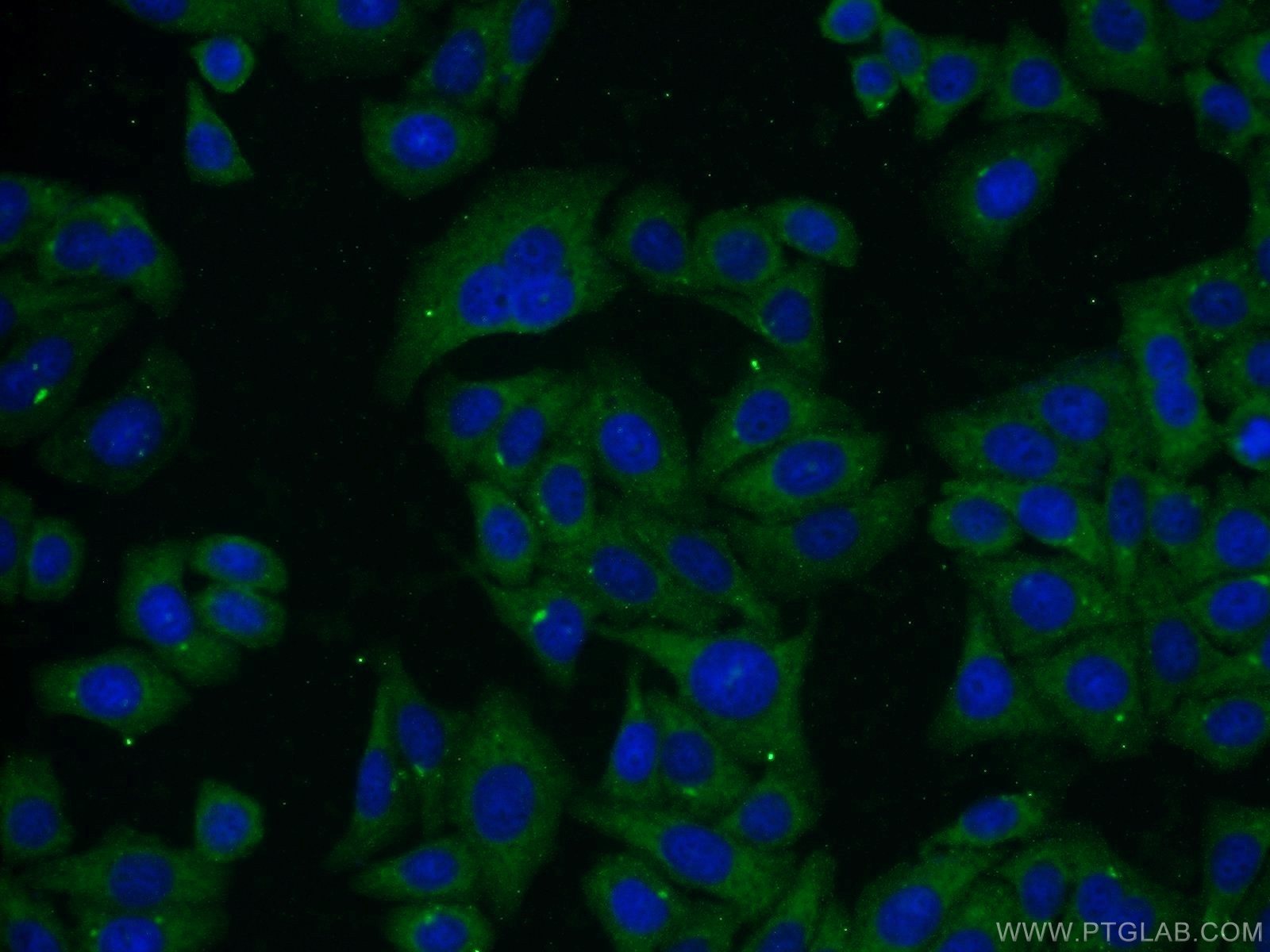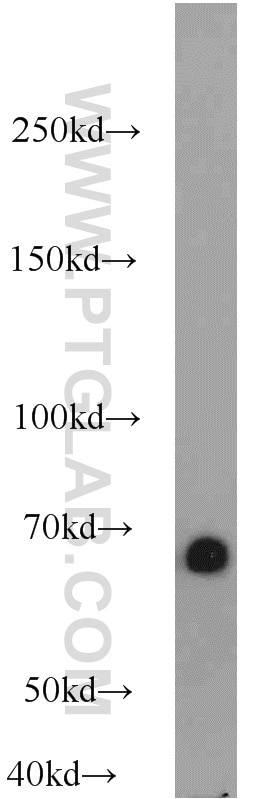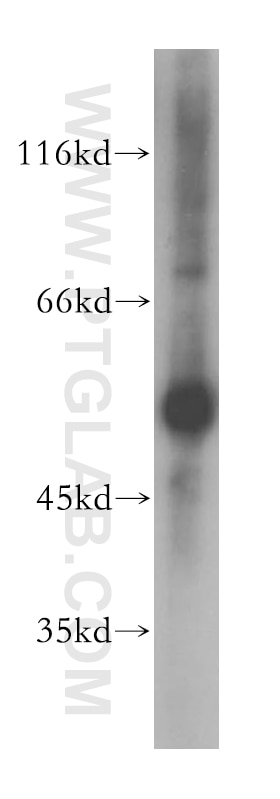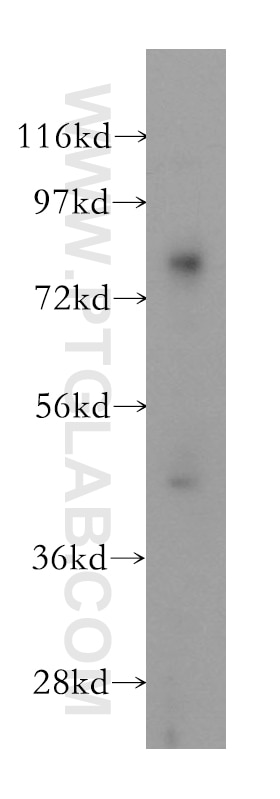- Phare
- Validé par KD/KO
Anticorps Polyclonal de lapin anti-GPT2
GPT2 Polyclonal Antibody for WB, IHC, IF/ICC, FC (Intra), IP, ELISA
Hôte / Isotype
Lapin / IgG
Réactivité testée
Humain, rat, souris
Applications
WB, IHC, IF/ICC, FC (Intra), IP, ELISA
Conjugaison
Non conjugué
N° de cat : 16757-1-AP
Synonymes
Galerie de données de validation
Applications testées
| Résultats positifs en WB | tissu hépatique de souris, cellules HepG2, tissu rénal de souris |
| Résultats positifs en IP | tissu rénal de souris |
| Résultats positifs en IHC | tissu de muscle squelettique humain, tissu cérébral de souris il est suggéré de démasquer l'antigène avec un tampon de TE buffer pH 9.0; (*) À défaut, 'le démasquage de l'antigène peut être 'effectué avec un tampon citrate pH 6,0. |
| Résultats positifs en IF/ICC | cellules HepG2, |
| Résultats positifs en FC (Intra) | cellules HepG2, |
Dilution recommandée
| Application | Dilution |
|---|---|
| Western Blot (WB) | WB : 1:500-1:3000 |
| Immunoprécipitation (IP) | IP : 0.5-4.0 ug for 1.0-3.0 mg of total protein lysate |
| Immunohistochimie (IHC) | IHC : 1:50-1:500 |
| Immunofluorescence (IF)/ICC | IF/ICC : 1:200-1:800 |
| Flow Cytometry (FC) (INTRA) | FC (INTRA) : 0.40 ug per 10^6 cells in a 100 µl suspension |
| It is recommended that this reagent should be titrated in each testing system to obtain optimal results. | |
| Sample-dependent, check data in validation data gallery | |
Applications publiées
| KD/KO | See 4 publications below |
| WB | See 24 publications below |
| IHC | See 7 publications below |
| IF | See 4 publications below |
Informations sur le produit
16757-1-AP cible GPT2 dans les applications de WB, IHC, IF/ICC, FC (Intra), IP, ELISA et montre une réactivité avec des échantillons Humain, rat, souris
| Réactivité | Humain, rat, souris |
| Réactivité citée | Humain, souris |
| Hôte / Isotype | Lapin / IgG |
| Clonalité | Polyclonal |
| Type | Anticorps |
| Immunogène | GPT2 Protéine recombinante Ag10273 |
| Nom complet | glutamic pyruvate transaminase (alanine aminotransferase) 2 |
| Masse moléculaire calculée | 523 aa, 58 kDa |
| Poids moléculaire observé | 58 kDa, 47 kDa |
| Numéro d’acquisition GenBank | BC062555 |
| Symbole du gène | GPT2 |
| Identification du gène (NCBI) | 84706 |
| Conjugaison | Non conjugué |
| Forme | Liquide |
| Méthode de purification | Purification par affinité contre l'antigène |
| Tampon de stockage | PBS avec azoture de sodium à 0,02 % et glycérol à 50 % pH 7,3 |
| Conditions de stockage | Stocker à -20°C. Stable pendant un an après l'expédition. L'aliquotage n'est pas nécessaire pour le stockage à -20oC Les 20ul contiennent 0,1% de BSA. |
Informations générales
GPT2 (Alanine aminotransferase 2; ALT2) is a key enzyme in intermediatary metabolism, catalysing the reversible transfer of the amino group of glutamate to pyruvate, yielding alanine and ketoglutarate. GPT2 protein localizes to mitochondria, and is mainly expressed in the pancreas, brain, adrenal gland, skeletal muscle and heart. Serum GPT2 is a useful marker for liver damage. Recently mutation of GPT2 has been reported to be a cause of neural disorder (27601654). 16757-1-AP antibody recognizes two different isoforms of GPT2 protein.
Protocole
| Product Specific Protocols | |
|---|---|
| WB protocol for GPT2 antibody 16757-1-AP | Download protocol |
| IHC protocol for GPT2 antibody 16757-1-AP | Download protocol |
| IF protocol for GPT2 antibody 16757-1-AP | Download protocol |
| IP protocol for GPT2 antibody 16757-1-AP | Download protocol |
| FC protocol for GPT2 antibody 16757-1-AP | Download protocol |
| Standard Protocols | |
|---|---|
| Click here to view our Standard Protocols |
Publications
| Species | Application | Title |
|---|---|---|
Cell Metab Rewiring of Glutamine Metabolism Is a Bioenergetic Adaptation of Human Cells with Mitochondrial DNA Mutations. | ||
Cell Res Glutaminase GLS1 senses glutamine availability in a non-enzymatic manner triggering mitochondrial fusion.
| ||
Nat Commun Sirtuin5 contributes to colorectal carcinogenesis by enhancing glutaminolysis in a deglutarylation-dependent manner. | ||
Cancer Res Targeting BCAT1 combined with α-ketoglutarate triggers metabolic synthetic lethality in glioblastoma. | ||
Proc Natl Acad Sci U S A Mutations in mitochondrial enzyme GPT2 cause metabolic dysfunction and neurological disease with developmental and progressive features. |
